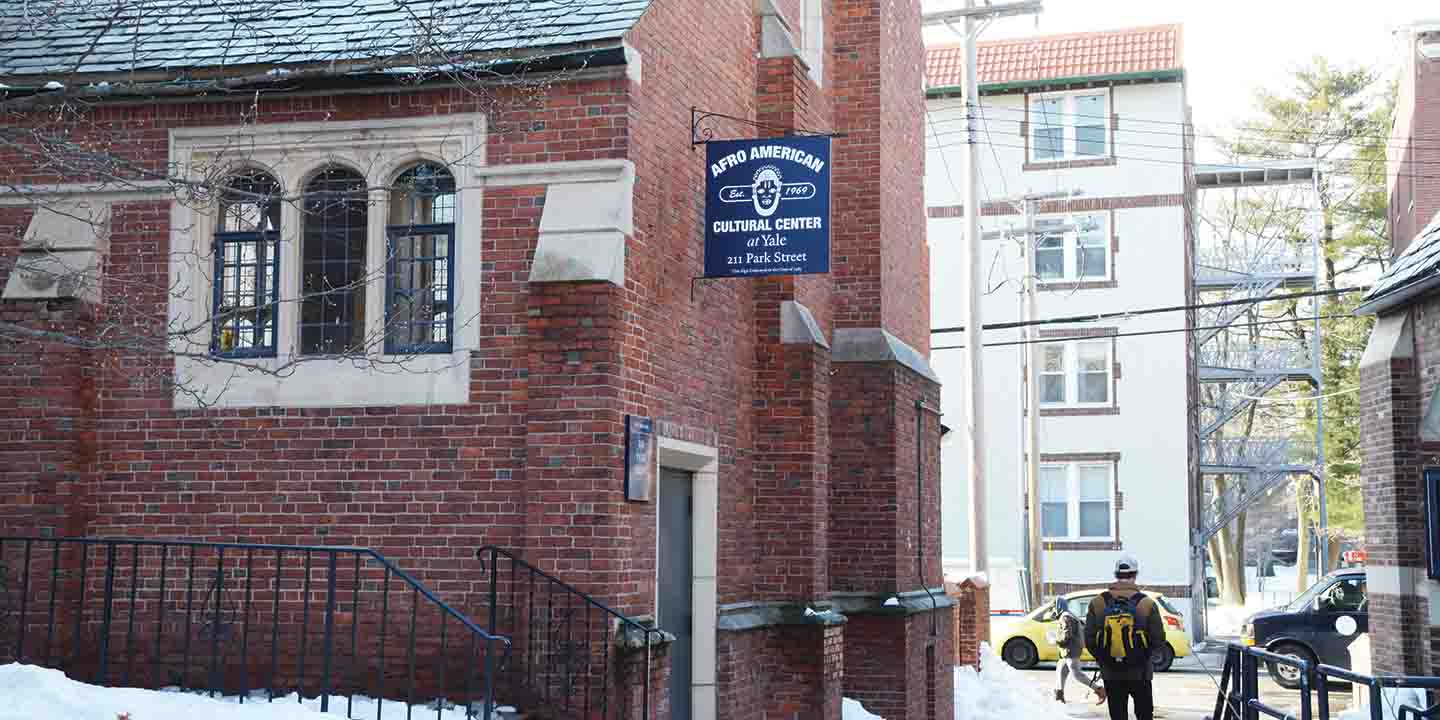
While University President Peter Salovey said Yale’s recent decision to rename Calhoun College was founded in “principle,” student activist groups credit the decision to years of pressure on the administration for a change.
Salovey announced Calhoun College will be renamed in honor of Grace Hopper GRD ’34, a U.S. Navy rear admiral and computer scientist. This decision reverses the University’s decision last April to retain the name amid ongoing campus protests. And while officials have emphasized the role of a committee on renaming and a taskforce on Calhoun in bringing about the decision, community leaders gave a different account of the renaming process — one with student activism at the forefront.
Branson Rideaux ’20, co-president of the recently founded Yale Undergraduate Political Art Club, said that not only is the name change a significant step in Yale’s path toward greater inclusivity, but also reaffirms that Yale is willing to listen to its students to create a more accepting campus environment. Rideaux added that the change provides hope for the power of protests both on and off campus.
“At this time in America it is easy to feel powerless,” Rideaux said. “But Grace Hopper College, for me at least, is a beautiful example of what a community can do when it fights for the change it believes in.”
Co-President of YPAC Carmen Clarkin ’20 agreed with Rideaux’s argument that the name change is a testimony to the power of activism and the significance of striving for positive change despite opposition.
Clarkin acknowledged the progress that still has to be made, but said that in light of the recent renaming, she is hopeful for the future. She hopes that the YPAC can, through its art, help further the conversations which will make future change possible.
Others in the Yale community agreed that the change reflects the importance of both student activism and civic involvement. The controversial college name has been a point of division at Yale since the 1970s, snowballing into a more intense debate in 2015 after the shooting of nine black churchgoers in South Carolina sparked a nationwide conversation about modern racism.
Throughout the 2015–16 academic year, Yale’s student activists made the renaming of Calhoun the focal point of their protests, which included a march in the fall of 2015 to Salovey’s Hillhouse Avenue home in the middle of the night.
According to Maclovia Quintana ’11 FES ’14, assistant director of La Casa Cultural, the changing of the name was fundamentally due to the perseverance and tenacity of student activists, who she said dedicated countless hours and sacrificed their schoolwork and well-being to fight for the ongoing cause.
“I think the takeaway for me is that students and alumni can hold the administration accountable for reflecting values of the University and the community and for walking the talk, which is good,” said Quintana.
President of the Yale College Democrats Josh Hochman ’18 echoed Quintana, adding that the Yale Dems are indebted to the work of both Yale and New Haven activists.
“They’ve shown us that apathy is untenable,” Hochman said. “When young people challenge an institution on a cause that is right, they are far more powerful than that institution. We must not forget that it was students and activists who earned this victory. Students and activists are indeed capable of victory, even when the institution that they challenge sits on Pennsylvania Avenue.”
However, while the renaming may represent an affirmation of the power of both student and New Haven activists to enact change, the Yale Women’s Center has argued that more remains to be done. In a Facebook post last weekend, the Women’s Center wrote that the decision to “change the name from a white supremacist to a white woman, as amazing as she may be, is an act of whitewashing.”
Vicki Beizer ’18, the Women’s Center’s public relations coordinator, told the News that renaming the college after Hopper does not end discussions about race on campus.
“Does this end the conversation or continue it?” Beizer asked. “Effectively we, at the Women’s Center, just want to make sure the conversation is continued, and renaming the college after a white woman doesn’t put the cork in the bottle.”
Beizer said that the names put forward by activists outside Calhoun on Cross Campus last year would have carried the dialogue further, and the naming of the college after a white woman shows the administration is still not truly listening to what the students want, as there is “an element of give an inch, take an inch.”
The Yale Women’s Center opened in 1970.







